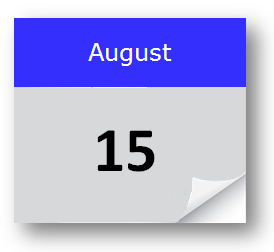In 1947 control of India transferred from Britian to the Indian people.
The East India Company was formed in 1600 just as England began to make its mark as a world trading nation. The company was set up to trade with the East Indies and the company grew quickly and soon became involved in at least half of the worlds trade. With its growing success it became extremely powerful, and even had its own private army.
During the “Seven Years War” (1754-1763) on the 23rd of June 1757 the British East India Company fought against the forces of newly appointed Nawab (Asian prince) Siraj-ud-daulah and his allies of the French East India Company. The British were hugely outnumbered but won the battle. This gave the British East India Company control of Bengal and over the next hundred years their control of India grew. On the 10th of May 1857 a rebellion began against the British East India Company in what became known as India’s First War of Independence. The East India Company won the war which ended on the 20th of June 1858 but the company itself was taken over by the British Crown. India became under British Raj (or Rule in Hindi) and remained so for almost a hundred years.
In 1919 a young lawyer by the name of Ghandi began a movement amongst his fellow Indians in protest to the terrible injustice they suffered under British Rule. His name and movement grew throughout the world and his form of non-violent protest and peaceful non-cooperation inspired many freedom fighters since. Ghandi was imprisoned for his beliefs but this just strengthened his resolve. On the 12th of March 1930 Ghandi began his protest march of the British salt tax which at the time was his most defiant and boldest act of civil disobedience against the British Empire. He started his 241 mile march from Sabarmati to the town of Dandi by the Arabian Sea. He set out with 78 followers but as word travelled that number grew and by the time he reached his destination on the 5th of April that year, he had tens of thousands following him. When he reached the Arabian Sea his plan was to take salt that deposits during high tide, but the authorities had already anticipated this and had it crushed into the mud. Not deterred by this Ghandi reached down into the mud and took a handful of the natural salt and by this he had defied the British. Gandhi became such a huge political figure the British found they had no defence against his acts of defiance and they were forced to discuss India’s Independence.
The government of the United Kingdom passed the Indian Independence act in 1947 which received royal ascent on the 8th of July that year making it law. The act gave independence to the subcontinent of India which had previously been under British rule. However western India had expressed its desire to become an independent dominion separate from the rest of India and therefore the act proclaimed that both India and the new dominion of Pakistan would gain there independence as of midnight between the 14th and 15th of August 1947. Both Pakistan and India also joined the British Commonwealth of Nations on the 15th of August 1947.
India wished to remain part of the British Commonwealth but also wanted to become a republic, so steps were taken to change the constitution of the Commonwealth in 1949. In order to still incorporate India it was agreed that member states no longer had to pledge allegiance to the British Crown and that all members were “free and equal members of the Commonwealth of Nations, freely co-operating in the pursuit of peace, liberty and progress.” This was the birth of the Commonwealth of Nations.
On the 26th of January 1950 India became a republic with their own constitution, head of state (President Dr Rajendra Prasad) and their own flag.
Pakistan now celebrates their independence on the 14th of August each year while India celebrates their independence on the 15th each year.
